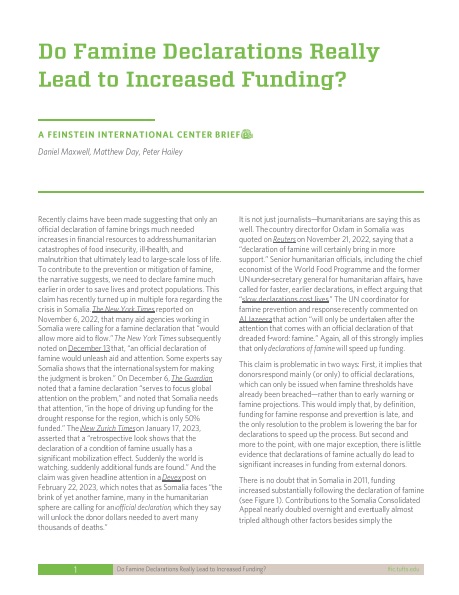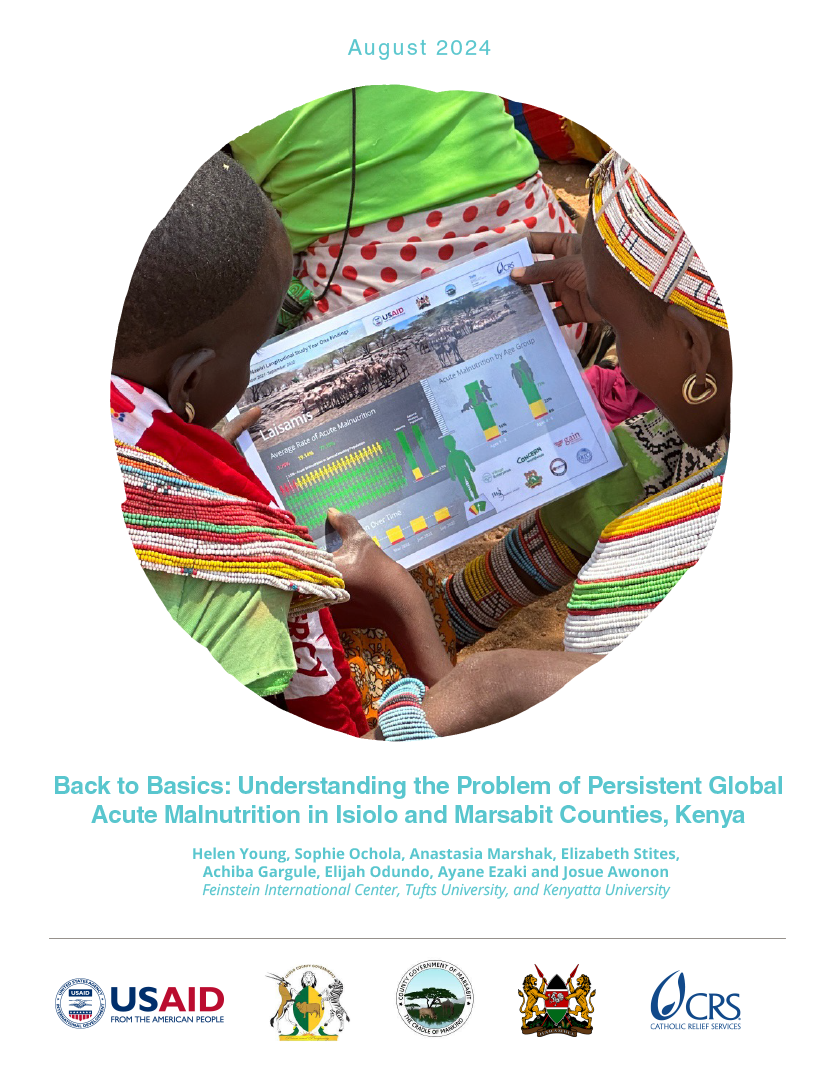Throughout 2022, as the situation worsened in the Horn of Africa, there were numerous calls from journalists and humanitarian leaders for famine to be declared. These calls repeatedly asserted that a declaration of famine would open up the spigots of funding, enabling enough money to flow to respond to the crisis at scale. These calls appear to be based on the one-time experience of Somalia 2011, when funding did ramp up dramatically in the wake of a declaration. They seem to ignore the evidence that this is the only famine declaration in more than a decade that has led to increased funding.
This policy brief examines the relationship between famine declarations and funding since 2011. It shows that, with that one exception, there is little evidence that famine declarations actually result in a rapid increase in funding. The authors argue that paying much closer attention to early warning is far better than simply lowering the bar for a declaration. In fact, this analysis offers some evidence that projections and warning statements do trigger greater prioritization, but not in all cases. Linking good analysis and warning to timely action continues to challenge the humanitarian system.







